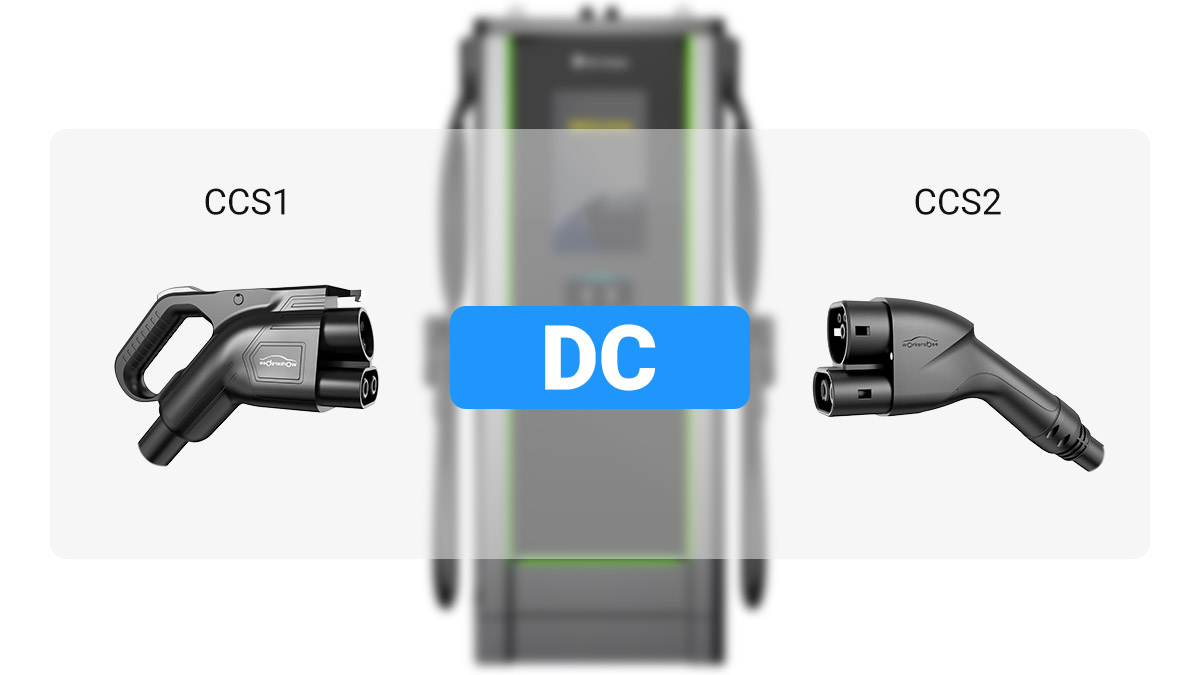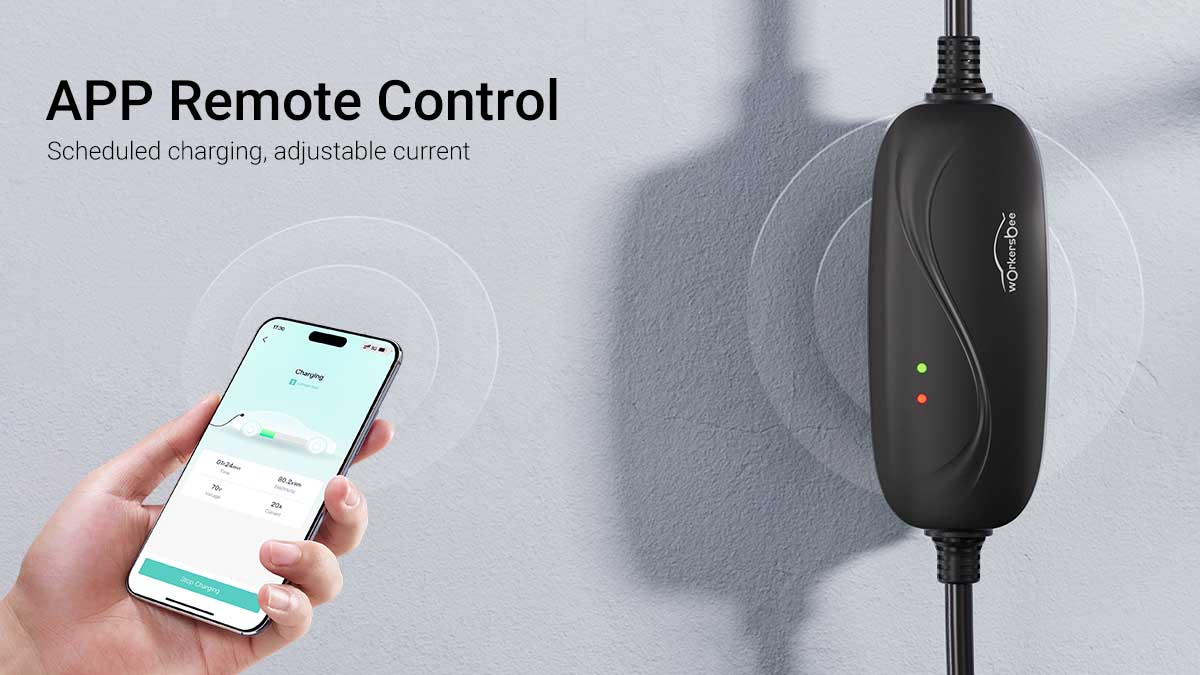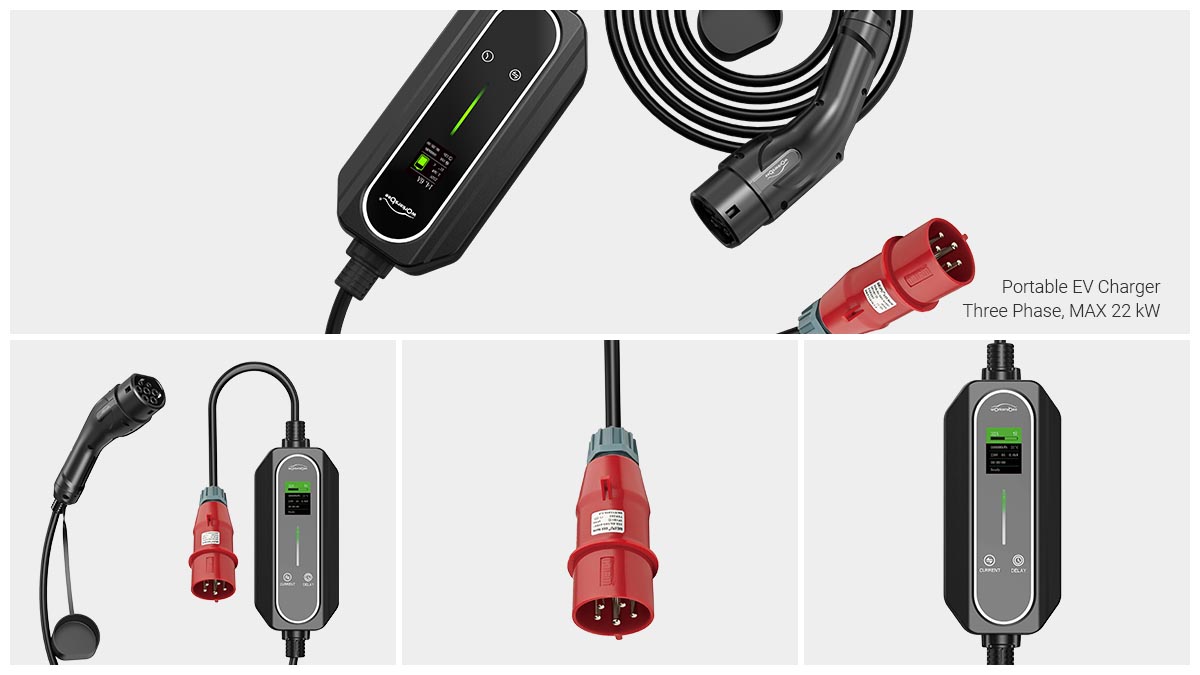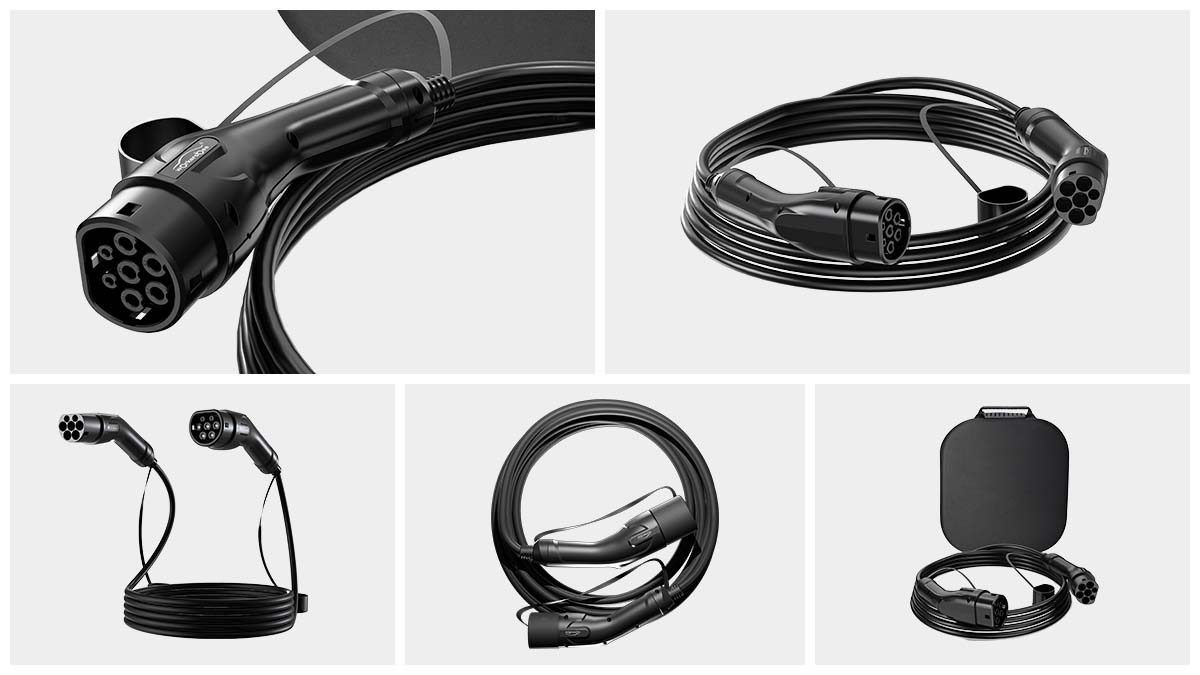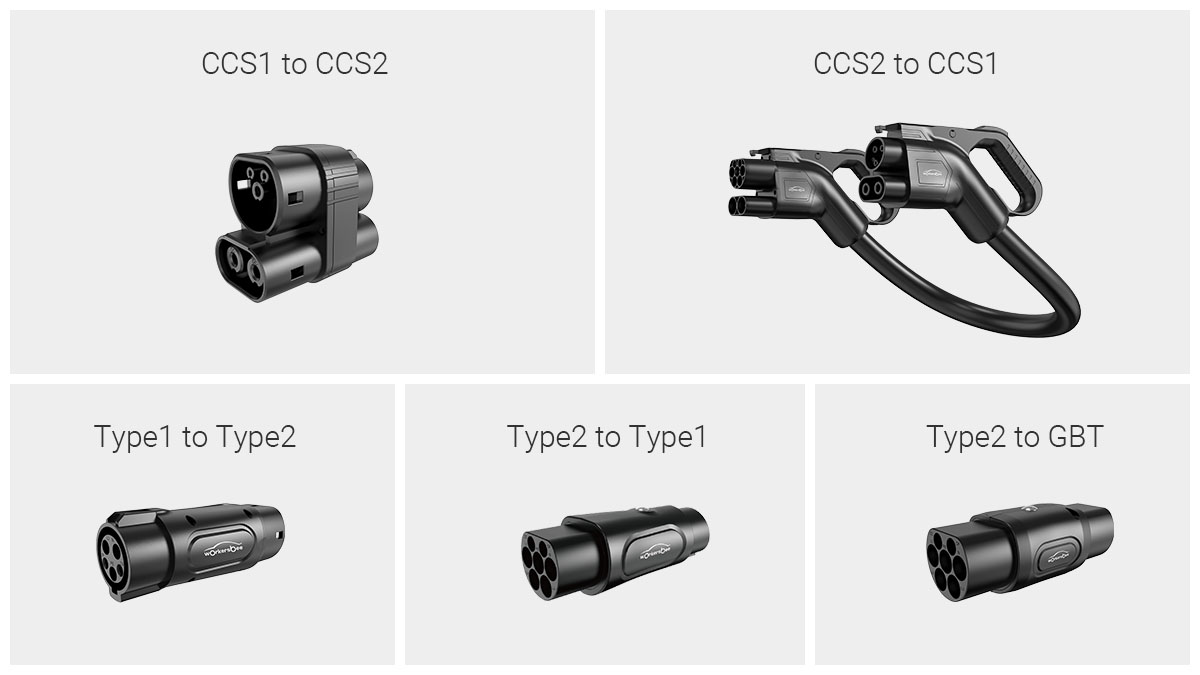1. Commercial DC EV charger
DC charging stations are increasingly gaining in popularity among car owners due to their fast charge time and lower infrastructure costs; however, due to certain constraints to needing specialization skills for operation. Recently, due to increased environmental awareness from governments worldwide, DC charging stations have seen rapid expansion. DC charging industry has made great strides forward, yet still faces many obstacles, including a shortage of skilled technicians and rising operating costs. To address these challenges, innovative solutions have emerged; Workersbee offers terminal quick-change technology and gun tip quick-change technology which address maintenance problems associated with DC charging stations' most vulnerable components.
2. Home Use Wallbox Charger
The Wallbox charger provides an efficient and compact charging solution with minimal infrastructure requirements, such as its popular 22kW counterpart. Incorporating advanced features like Wi-Fi connectivity, mobile app control, and charging data tracking. However, it does have its own set of limitations: while installation may be quicker compared to commercial DC EV chargers; some expertise may still be required and it may not be suitable for situations that involve frequent vehicle repositioning such as traveling.
3. Portable EV Charger Without Screen
The key advantage of this product is its lightweight design, making it convenient and lightweight enough to carry in a backpack while mountain climbing. For instance, Workersbee Portable EV Charger Without a Screen weighs only 1.7 kg allowing electric vehicle charging wherever there is power; color indicator lights show charging status clearly with scheduling capabilities available through mobile apps; its intelligence remains impressively high despite not featuring a display.
4. Portable EV charger with a screen
Workersbee offers a highly acclaimed portable EV charger with a personalized design and safe charging capabilities. This charger, equipped with a screen, has gained popularity among users. Additionally, its intelligent features like Bluetooth connectivity, OTA remote upgrades, and a mobile app enhance the user experience. With Workersbee's customized design and services, customers can efficiently expand their brands through B2B trade.
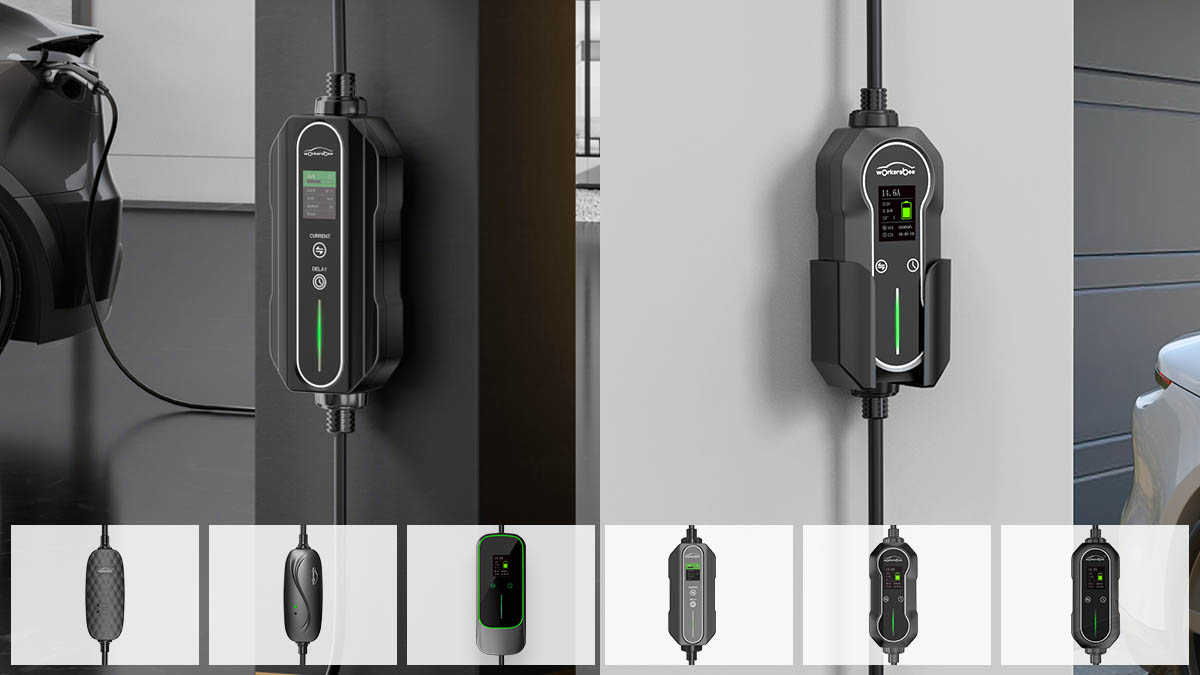
5. 3-phase portable EV charger
The three-phase portable EV charger offers improved charging efficiency compared to traditional models. It combines the intelligence and customization features found in conventional chargers. However, it's worth noting that the three-phase charger tends to be slightly heavier than standard portable EV chargers. Despite this drawback, many car owners find its capabilities beneficial, even utilizing it for commercial purposes.
6. RV solar panels EV charger
An RV solar panel EV charger is a system in which solar panels are installed on the roofs of RVs, trucks, and off-road vehicles to harness solar energy for charging an onboard energy storage system or battery. The device offers energy savings as it reduces dependence on non-renewable fuel sources while simultaneously decreasing emissions; it requires professional installation however and may require flat-top vehicles and flexible solar panels that are lightweight yet bendable (but more expensive). Overall the RV Solar Panel EV Charger provides a sustainable solution for powering vehicles while simultaneously reducing carbon footprints and carbon emissions.
7. Emergency mobile EV charger
The Emergency mobile EV charger is a device designed to charge electric vehicles (EVs) in emergency situations. It can be conveniently carried and used whenever needed. Once charged, it can be transported and deployed to charge EVs anytime and anywhere. Typically, it is equipped with wheels, similar to a suitcase, making it easy to tow along. However, it has certain limitations, such as limited battery capacity and relatively large weight and size, which may occupy significant trunk space.
8. EV extension cable
An EV extension cable is a cable designed to extend the charging range of an electric vehicle. The most popular options on the market are the 5-meter and 10-meter lengths. To illustrate, let's consider the 5-meter EV extension cable. Visualize it as a circle with a radius, and you'd have an area of approximately 78.54 square meters. This gives you an idea of the convenience it provides to car owners. However, it's essential to note that longer extension cables can sometimes slow down the charging speed and reduce overall efficiency. Nevertheless, these issues are typically quite minor when using 5-meter and 10-meter EV extension cables. Generally, the market outlook for investing in EV extension cables appears favorable. Selecting a reputable service provider can enhance your return on investment through aspects such as quality, customization options, and technological advancements.
9. EV Extension Cable With Spring Wire
EV extension cables equipped with spring wires not only make storage more straightforward but also address certain limitations found in traditional EV extension cables. However, it's essential to note that their production costs are higher, and their appeal is relatively limited, which might result in a smaller market for businesses involved in selling these products.
10. EV adapter
EV adapters are accessories used to connect an electric vehicle (EV) to different charging stations or outlets. Adapters offer an economical solution to compatibility issues between electric vehicles (EVs) and infrastructure, but may not provide equal charging speed or capabilities as would a direct match. Some adapters may be limited in terms of power capacity they can accommodate, leading to longer charging times. With improvements made to tram charging infrastructure, chargers have become more diversified and intelligent; as a result, the investment value for EV adapters continues to decrease and car owners find methods that meet their charging needs without needing adapters.
Post time: Oct-30-2023


